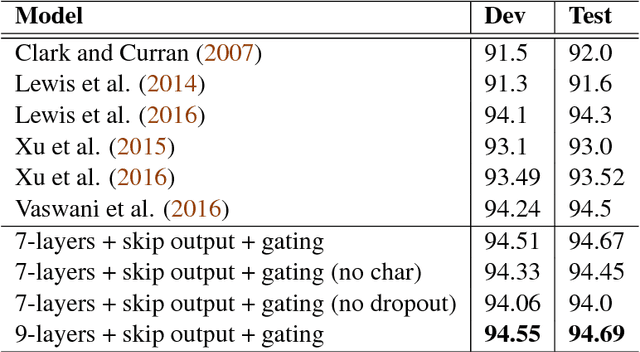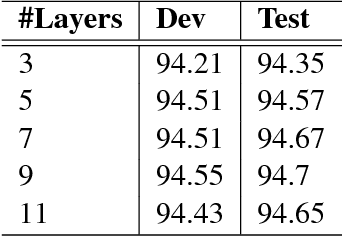An Empirical Exploration of Skip Connections for Sequential Tagging
Paper and Code
Oct 11, 2016



In this paper, we empirically explore the effects of various kinds of skip connections in stacked bidirectional LSTMs for sequential tagging. We investigate three kinds of skip connections connecting to LSTM cells: (a) skip connections to the gates, (b) skip connections to the internal states and (c) skip connections to the cell outputs. We present comprehensive experiments showing that skip connections to cell outputs outperform the remaining two. Furthermore, we observe that using gated identity functions as skip mappings works pretty well. Based on this novel skip connections, we successfully train deep stacked bidirectional LSTM models and obtain state-of-the-art results on CCG supertagging and comparable results on POS tagging.
* Accepted at COLING 2016
 Add to Chrome
Add to Chrome Add to Firefox
Add to Firefox Add to Edge
Add to Edge